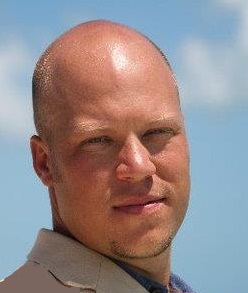In collaboration with CHIME, Becker's Hospital Review's new "Life of a Healthcare CIO" series features leading hospital and health system CIOs from across the country who are sharing their experiences, best practices and challenges.
To recommend a CIO to be featured in this series, please contact Helen Gregg (hgregg@beckershealthcare.com).
An interview with Joey Hobbs, CIO of Community Hospital Anderson (Ind). (Interview has been edited for length and clarity.)
Question: You've been CIO of Community Hospital Anderson for a year and a half. What has changed about your job since you began?
Joey Hobbs: I actually performed the duties of the role for about two years [as director of IT] before I was CIO as we were without the CIO position, but officially I’ve been CIO for a year and a half.
I think one of the biggest things that changed is my direct reporting relationships. I’m reporting to the CEO now, and working to guide the organization at that level rather than lead as the head of the IT department. Being in meetings [with the CEO and other VP’s] gives me the ability to hear the challenges of the organization and help figure out how to use technology to drive down costs and improve care. When IT isn’t in the room you might not even be aware of a problem that is there, when you have a solution available.
Q: In your time with Community Hospital Anderson, what has been your biggest accomplishment?
JH: We have a pretty small staff, but over a two-year period we went from a [HIMSS Analytics] stage 3 to a stage 6 hospital and were also able to achieve meaningful use in that time. We’re proud of that as an organization, as we don’t have a huge IT budget.
As an organization, we had made the decision to switch from a best-of-breed [electronic health record] system to an integrated system. One of the things I’m most proud of as manager of that project was that I relied on the staff we had and empowered them to lead in their areas. It was a big benefit to be able to take a small staff and have them be able to handle a project of that size. It was also a big deal because that wasn’t the way things were done before.
Q: What do you see as your biggest misstep or mistake?
JH: Any CIO will admit that you’ll make mistakes with pieces of this job. We do a lot, and when the market changes you have to take your best guess as to where the market’s going to go. We bought products we ended up not needing or that didn’t fit the exact criteria of what we were trying to accomplish. I think things like that will always happen because of the speed at which everything happens. Often you have to take your best guess that this is the vendor or the product that will get you there.
We’ve been right more than we’ve been wrong, though, and we’ve made a lot of the right investments in the right systems.
Q: Looking back over the past month, what has taken up the majority of your time?
JH: No question — meaningful use stage 2 implementation. We attested [to stage 1] during one of the periods that requires 2014 to be our year [to meet stage 2]. The government should have extended this — the market is not ready to meet the requirements, especially in terms of clinical decision support, secure messaging and interoperability.
Every hospital is really pushing the envelope right now hoping to make it in time. For example, we’re running beta tests for our CCD product, which means we’ll only have six months to get everything together. [Stage 2] is what the bulk of our efforts are towards right now.
Q: What is the biggest challenge you're facing right now?
JH: It’s the number of things we’re facing. It’s not just stage 2, we also have ICD-10 later this year. We have to put all our effort into everything today. We’ve been working on ICD-10 for a long time as well as some specific pieces of meaningful use stage 2, and there’s also working on interoperability between systems and making updates to the EHR… and the project list continues to grow.
These challenges are really the same across the industry. The requirements are the same, whether you’re a 200- or a five-bed hospital. The scale is different, but so is the scale of staff and resources available.
Q: What is one lesson you've learned during your tenure you'd like to share with other CIOs?
JH: My biggest piece of advice is to build a great team and then trust them. There’s no question, you will not be able to do it all alone. You need to build a strong team that you trust and allow them and empower them to do things. It’s the only way to accomplish everything in today’s world.
More Articles in the Life of a Healthcare CIO Series:
The Life of a Healthcare CIO: Hawaii Pacific Health's Steve Robertson
The Life of a Healthcare CIO: Summa Western Reserve Hospital's Pam Banchy
The Life of a Healthcare CIO: Children's Hospital Colorado's Mary Anne Leach

